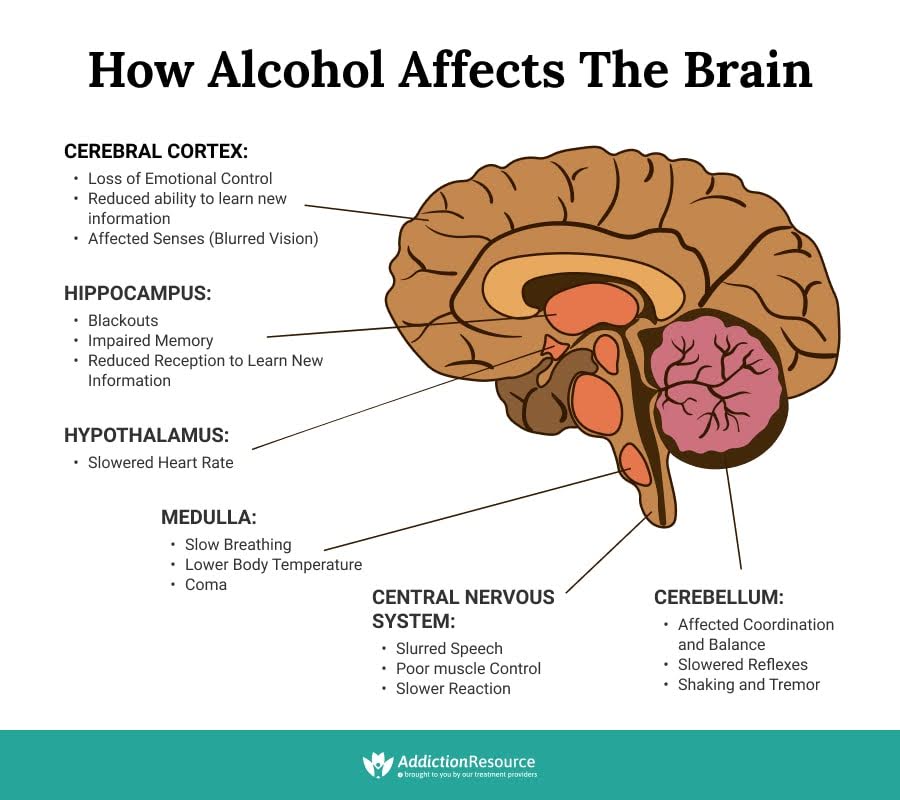Alcohol affects your body quickly. 20% of alcohol passes into your bloodstream through your stomach and the rest 80% enters the bloodstream through your small intestine. Once there, the blood carries the alcohol to all important organs (the brain, liver, and heart) as if it was the nutrition that your body needs. It reaches the brain only in 5 minutes. Drinking is associated with many adverse cognitive changes. The short-term effects are well known and include poor coordination, blurred vision, slurred speech, slowed reaction times, and impaired memory. In the long run, regular drinking damages the brain in different ways, from deforming brain cells to brain shrinkage. The infographic shows how it can negatively influence different brain areas.
No one will argue that heavy drinking is linked to widespread and significant brain lesions. But scientists suggest that even moderate alcohol consumption harms the brain, as it reduces grey matter volume.
So, what is a solution? To avoid drinking at all? If you can’t control its consumption, you should consider this option. But alcohol is legal and everyone decides for themselves. However, AddictionResource authors find it useful to learn the consequences of drinking before making a decision to drink.
Infographic by: addictionresource


